Courses in the Department of African American and African Studies
Courses within the Bachelor of Arts degree major as well as the minor in AAAS offer students opportunities to engage and study the beauty, diversity and complexity of Black communities and Blackness as it is lived, imagined, and created. Students graduate with a prepared readiness to solve real world problems and act on behalf of the most just futures we can collectively and radically imagine.
If students have any questions about pre-requisites or the frequency courses are offered, please email advisors: advising@aaas.msu.edu.
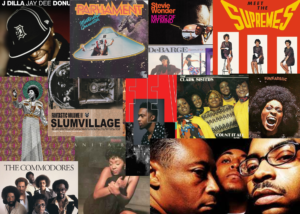
Description: This three-credit course will cover current trends and topics in African American and African Studies. AAAS 100 uses pathways from the Diaspora to Detroit and students’ lived experiences to explore the Black experience. Various entry points to explore pathways include Black oral traditions, music, politics, art, migrations, Afro-Latinx histories, and culture. In addition, this course allows for students with both nascent and developed interest in Black studies to delve deeper into their intellectual passions.

Description: This course will provide an introduction to Black feminist theory (a system of ideas), philosophy (the study of problems concerning existence), and practice (the application of both theory and philosophy
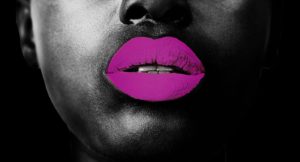 Description: In this interdisciplinary course, we will explore representations and social constructions of race, gender and sexuality and how these intersect and inform Black people’s lives. How and in what ways, that is, do particular narratives regarding Black people and black racialized sexualities manifest and are entrenched in society, literature, laws, cultural production, and various types of media that range from music videos, reality television, magazines and print culture to social media, web series, and film, among other venues? Drawing upon critical frameworks informed by black feminist theories, gender and sexuality studies, critical race and performance theories, and intersectional paradigms, this course analyzes and explores black sexualities, the “erotics of racism,” and black sexual politics.
Description: In this interdisciplinary course, we will explore representations and social constructions of race, gender and sexuality and how these intersect and inform Black people’s lives. How and in what ways, that is, do particular narratives regarding Black people and black racialized sexualities manifest and are entrenched in society, literature, laws, cultural production, and various types of media that range from music videos, reality television, magazines and print culture to social media, web series, and film, among other venues? Drawing upon critical frameworks informed by black feminist theories, gender and sexuality studies, critical race and performance theories, and intersectional paradigms, this course analyzes and explores black sexualities, the “erotics of racism,” and black sexual politics.
Description: Join the iconic House of Wilmot in this magnificent course dripping with opulence. Explore gender beyond the binary, challenge capitalistic, western, and toxic social norms. Fall in love with nonbinary royalty and activist queens. Unpack masculinity and femininity. “You can be both, meet in the middle, dance all night” – Beyoncé
Description: 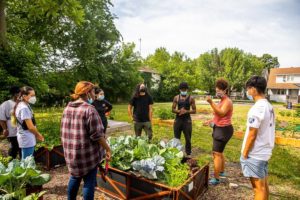 This course examines Black people’s collective practices of resistance against systemic oppressions. Students will read, view, and listen to Black herstories, presences, and futures as articulated through art, literature, placemaking, and politics. Students can expect to analyze community building and the pursuit of joy as Black activist praxes.
This course examines Black people’s collective practices of resistance against systemic oppressions. Students will read, view, and listen to Black herstories, presences, and futures as articulated through art, literature, placemaking, and politics. Students can expect to analyze community building and the pursuit of joy as Black activist praxes.
Description: Students will be introduced to the field of Black performance studies. In this course, students will examine a broad range of performances on and off the stage, including live and recorded, performance art, storytelling, rituals, political speeches, protests, and everyday encounters. This course emphasizes the relationship between theory and practice. Therefore, students will be required to be active participants in creating expressive works throughout the semester.
Black Institutions, Sustainability, and Statecraft delves into the historical significance and contemporary relevance of Black institutions within a global context. This course explores how these institutions have shaped communities, economies, and politics while examining the challenges they face. Students will analyze strategies for sustainability, resilience, and the impact on broader statecraft. Engage with critical topics such as governance, education, economic, development and cultural preservation within Black communities, fostering a deeper understanding of their role in societal progress.
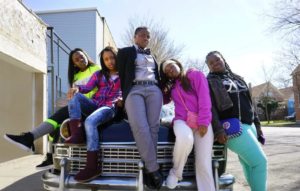 Description: This course introduces students to the herstories, presences, and futures of Black Girls and Black Girlhoods and to the field of “Black Girlhood Studies.” Students will examine and interrogate the complex knowledges, identities, cultures, politics, representations, and realities of Black girls and femme-identified and gender-expansive young people. This course is intentionally and unapologetically both transdisciplinary and undisciplined—we will be reading, viewing, listening, and creating across and beyond academic “disciplines” and “fields” in order to center Black Girls and to “let her be born & handled warmly,” as instructed by our now-Ancestor Ntozake Shange. Throughout the semester, we will critically reflect upon how Black Girls know, remember, document, express, and imagine who they/we were, are, and will be.
Description: This course introduces students to the herstories, presences, and futures of Black Girls and Black Girlhoods and to the field of “Black Girlhood Studies.” Students will examine and interrogate the complex knowledges, identities, cultures, politics, representations, and realities of Black girls and femme-identified and gender-expansive young people. This course is intentionally and unapologetically both transdisciplinary and undisciplined—we will be reading, viewing, listening, and creating across and beyond academic “disciplines” and “fields” in order to center Black Girls and to “let her be born & handled warmly,” as instructed by our now-Ancestor Ntozake Shange. Throughout the semester, we will critically reflect upon how Black Girls know, remember, document, express, and imagine who they/we were, are, and will be.
 Description:
Description:
This course focuses on exploring themes of Afrofuturism through the work of Octavia Butler and Black quilt artists. In this course we will learn with the life, affirmations, and stories of Octavia Butler. We will also explore Black quilt artists and the ways their quilt praxis may serve as a means of materializing Black futures. Together we will listen to stories, engage archival artifacts, create textile art and other creative artifacts.
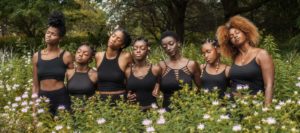 Description: The course engages in a transdisciplinary examination of how land matters in the lives of Black people. Students will read, interrogate, and reflect upon concepts, practices, and policies related to: placemaking and place memory, settler colonialism, slavery, and sharecropping, rootwork and marronage, land rights and land loss, farming and gardening, nature and “the outdoors,” and environmental justice. Overall, students will engage in cultural and political praxes and imaginaries of Black people’s relationship to/with land.
Description: The course engages in a transdisciplinary examination of how land matters in the lives of Black people. Students will read, interrogate, and reflect upon concepts, practices, and policies related to: placemaking and place memory, settler colonialism, slavery, and sharecropping, rootwork and marronage, land rights and land loss, farming and gardening, nature and “the outdoors,” and environmental justice. Overall, students will engage in cultural and political praxes and imaginaries of Black people’s relationship to/with land.
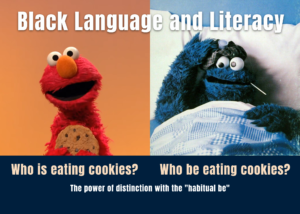 Description: Black English. African American Vernacular English. Ebonics. African American Language. “So good it’s bad” (Smitherman, 2006, p. 1). This course explores the intersections of Black language, literacies, and community where we examine the struggles and movements to affirm and preserve Black language. Students will learn about the legacy of Black oral culture and traditions and the historical uses of language among Black folks. Students will examine the use and impact of different forms of media (speech, print, electronic) and location of speech (professional, social, academic) where although Black language is at times rejected, it has also crossed over into mainstream English. “The language is bound up with and symbolic of identity, camaraderie, culture, and home. And it ain goin nowhere” (Smitherman, 2006, p. 22).
Description: Black English. African American Vernacular English. Ebonics. African American Language. “So good it’s bad” (Smitherman, 2006, p. 1). This course explores the intersections of Black language, literacies, and community where we examine the struggles and movements to affirm and preserve Black language. Students will learn about the legacy of Black oral culture and traditions and the historical uses of language among Black folks. Students will examine the use and impact of different forms of media (speech, print, electronic) and location of speech (professional, social, academic) where although Black language is at times rejected, it has also crossed over into mainstream English. “The language is bound up with and symbolic of identity, camaraderie, culture, and home. And it ain goin nowhere” (Smitherman, 2006, p. 22).

Description: In this interdisciplinary course, we will explore African American film and the history, aesthetics, political and commercial contexts of its production. What, that is, are the evolutions and progressions from film to film? How are these cinematic reflections embedded, as well as in conversation with, larger sociohistorical, political, and racial ideologies? And how do these films draw upon and deploy black cultural aesthetics, expressive culture, and cinematic techniques—such as film shots and angles, color schemes, narratives, scripts, language, and music—to shape representational, aesthetic, and thematic developments in African American film? Examining various types of film during different historical and cinematic eras, namely (though not exclusively post-1970 to the contemporary moment), this course examines how black directors and filmmakers engage, produce, and complicate narratives of race, specifically U.S. representations of blackness and constructions of race, as these intersect with gender, sexuality, class, geography, and other axes of identity.
Description: Wellness is the active pursuit of one’s individual and collective needs and desires. This course presents the creative arts as tools to promote well-being and to manage the effects of illness, stress, and trauma. Students will engage in reading, analyzing, writing, and creating Black Feminist poetry, memoir, theatre, and fiction in order to center personal wellness & radical healing inside and outside of the classroom.
Description: Engage studio, workshop or another interactive modality of making to apply Black aesthetic and social principles responsible for motivating movement and composing new and innovative arrangements of collective being, experience, and thought. Student will read, discuss, and examine sonic, visual, audio, theatrical, culinary, literary, and/or fashion archives of Black peoples and communities.
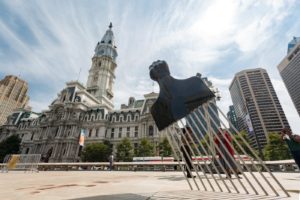 Description: Students will critically explore the role of various institutions in enabling oppression and constraining diversity, equity, and inclusion. Students will also examine historical, contemporary, future-oriented pursuits towards justice and liberation, with a special focus on the MidWest.
Description: Students will critically explore the role of various institutions in enabling oppression and constraining diversity, equity, and inclusion. Students will also examine historical, contemporary, future-oriented pursuits towards justice and liberation, with a special focus on the MidWest.
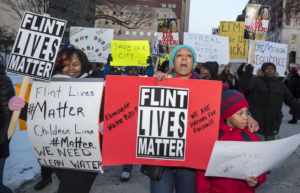 Description: This class amplifies the Black herstories of the environmental justice movement and contemporary perspectives of Black ecologies. Students will come to better understand systemic and intersectional socio-ecological oppressions that leave Diasporic Black spaces and places susceptible to crises. Moreover, students will also learn from activists, artists, scientists, and everyday folk in order to analyze how Black people across the Diaspora leverage insurgent knowledges and practices towards community-accountable and sustainable Black futures.
Description: This class amplifies the Black herstories of the environmental justice movement and contemporary perspectives of Black ecologies. Students will come to better understand systemic and intersectional socio-ecological oppressions that leave Diasporic Black spaces and places susceptible to crises. Moreover, students will also learn from activists, artists, scientists, and everyday folk in order to analyze how Black people across the Diaspora leverage insurgent knowledges and practices towards community-accountable and sustainable Black futures.
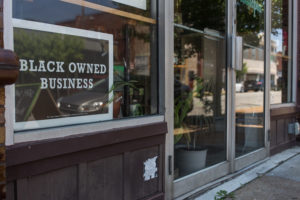 The hustle! The grind! The paper chase!
The hustle! The grind! The paper chase!
Black Entrepreneurship and Hustle will examine the ways that Black folx get that money! What are the historical ways that we understand Black folx money-making approaches? What are the stories that we accept (or reject) about Black entrepreneurship? How are our ways of participating in hustle and grind culture in conversation with or in tension with the sociopolitical ways that capitalism affects our lived experiences as Black people in America? How does the hustle look different across class and gender in Black communities? What ways of hustling are accepted or shunned? From Madam C. J. Walker to Jay Z, to Etsy stores and doing hair outta your house! What does the hustle mean to you and why? Let’s get it!
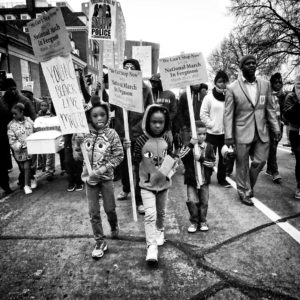 Description: Black people have a long history of developing complex and nuanced theories, pedagogies, and practices of protest. Black movements for social change continue to shape global discourse and understanding. Students in this class will learn from and lean on Black Feminisms to analyze various forms of Black resistance, including demonstrations, protesting, rebellions, artmaking, aesthetics, spiritual rituals, embodied practices, and institutional and legislative change.
Description: Black people have a long history of developing complex and nuanced theories, pedagogies, and practices of protest. Black movements for social change continue to shape global discourse and understanding. Students in this class will learn from and lean on Black Feminisms to analyze various forms of Black resistance, including demonstrations, protesting, rebellions, artmaking, aesthetics, spiritual rituals, embodied practices, and institutional and legislative change.
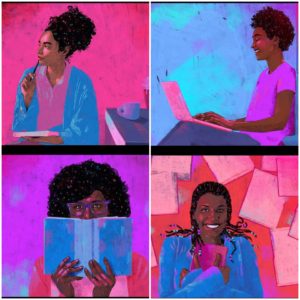
Description: In this intensive creative writing workshop, students will come to know that good readers become good writers. Students will practice critical reading skills by considering an expanded canon of well-known, emerging, and submerged Black Feminist writers of poetry, memoir, fiction, science fiction, and journalism. Students will also practice writing, critiquing, and revising their own work and that of their peers with loving rigor. Additionally, students will have the opportunity to practice, perform, and further disseminate their work. Overall, I look forward to holding space for students to grow awareness of their individual and collective agency, power, and vitality through the written and spoken word.